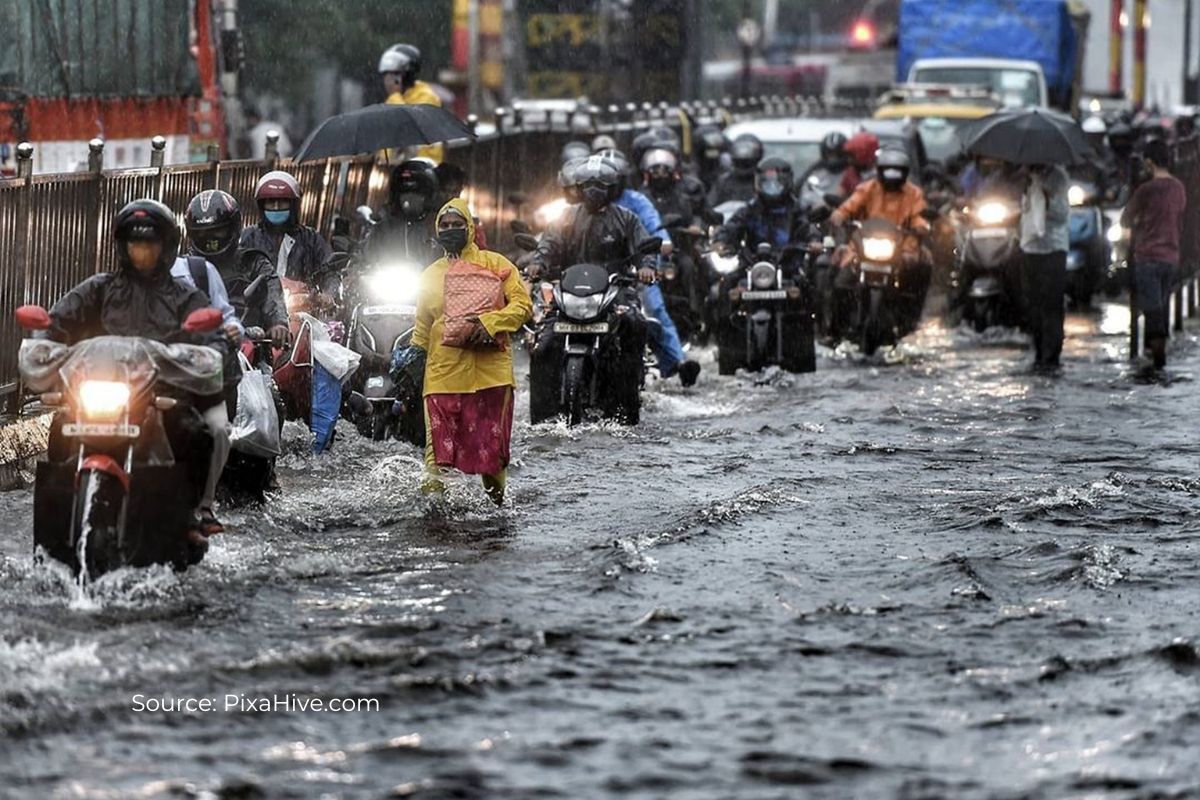A new study conducted by researchers from Kurukshetra University and Savitribai Phule Pune University has revealed that due to rising emissions and climate change, Greater Mumbai is experiencing more rainfall than before.
The study showed that the rainfall in this region is increasing at the rate of 5.18 mm per year. The findings of the study were published in the International Journal Theoretical and Applied Climatology.
The study is based on rainfall data from 25 stations in Mumbai. It included data from 1985 to 2020 for two stations Santacruz and Colaba and data from 2006 to 2020 for other 23 stations, covering areas such as Andheri, Bandra, Borivali, Chembur, Dadar, Deonar, Dharavi, Kurla, Malad, Mulund, Vikhroli, Vile-Parle, Worli, Tulsi, Goregaon, Kandivali, BMC, and others.
The research showed that the Santa Cruz area is the rainiest place in the city, with a record of 3721.99 mm rainfall in 2020, while Gowalia recorded the lowest average rainfall of 1,717.55 mm.
Mumbai is seeing a rise in rainfall every year due to the changing global climate. The changing weather patterns are attributed to factors such as increasing temperatures, melting of glaciers, and changing wind patterns.
The rise in rainfall in Mumbai is particularly concerning as it can lead to severe flooding and disrupt the city’s infrastructure, economy, and daily life.
Changing rain pattern is becoming a problem
A study has found that rainfall in certain areas of Mumbai has been increasing and becoming more irregular, with heavy and extremely heavy rain becoming more frequent since 1994 in Santa Cruz and since 2005 in Colaba.
The pattern of rain events has become more severe, with the changes in rainfall being more pronounced between 2001 and 2005, the same year that heavy rains caused severe floods in Mumbai.
The floods caused massive economic losses, with 700 deaths, 244,110 houses damaged, and 97 schools destroyed. Scientists warn that this change in rainfall can have a significant impact on the ecosystem and natural resources.
The findings of this study match those of the Mumbai Climate Action Plan (MCAP), which has highlighted the urgent need for mitigation and prepared a 30-year roadmap for the city.
Data from the past 10 years
The lead author of the study, Rohit Mann, explained that the 2005 floods in Mumbai were not an isolated incident but rather reflective of broader changes in the Indian Summer Monsoon Rainfall due to climate change.
Based on the data from the past 10 years, Mumbai experiences an average of six heavy, five very heavy, and four extremely heavy rainfall events each year.
The Mumbai Climate Action Plan has already warned about the changes in the city’s rainfall patterns and stressed the need for urgent mitigation measures.
The study highlights the need for sustainable urban planning and disaster management infrastructure to make Mumbai more resilient to the effects of climate change.
Conclusion
The study highlights the urgent need for proactive measures to mitigate the impact of climate change in Mumbai.
It calls for the implementation of sustainable urban planning practices, investment in disaster management infrastructure, and increased public awareness of the risks associated with climate change.
By taking these steps, Mumbai can become a model for other cities around the world on how to adapt to the challenges of climate change.
Keep Reading
Part 1: Cloudburst in Ganderbal’s Padabal village & unfulfilled promises
India braces for intense 2024 monsoon amid recent deadly weather trends
Support us to keep independent environmental journalism alive in India.
Follow Ground Report on X, Instagram and Facebook for environmental and underreported stories from the margins. Give us feedback on our email id greport2018@gmail.com.
Don’t forget to Subscribe to our weekly newsletter, Join our community on WhatsApp, and Follow our YouTube Channel for video stories.






